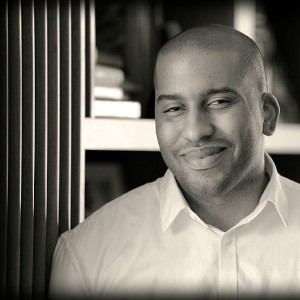Dorian Burton has a doctorate degree from Harvard. He is a program officer for one non-profit organization and co-director of another. He is a Penn State graduate and former football player. Yet he is worried about the way society will treat his sons as they become teenagers.
Burton works every day to make a better future for them and all black males.
males.
He co-organized the recent 23rd Annual National Symposium on Family Issues – Boys and Men in African American Families at Penn State, along with members of Penn State’s faculty and his mother, Linda, dean of social sciences at Duke. The symposium helped bring together some of the “brightest minds” doing work in the area of black men and boys, Burton said.
He is the program officer in philanthropy for the Chapel Hill, N.C.,-based William R. Kenan, Jr. Charitable Trust, which supports educational advancement. Burton oversees the portfolios and grant-making for K-12 students. Previously, he was the co-director of TandemEd, an organization that works within black communities on asset-based narratives.
I noticed this theme throughout the symposium. African American boys and men face a system that sees their deficits instead of their assets.
Burton began a campaign in Pittsburgh through TandemED entitled BlackIsPittsburgh to “strengthen community perception and change the narrative through sharing and promotion of [community members’] stories.”
He believes the active generation of younger African Americans is using tools like social media to force society to face issues surrounding race.
“I think that while the issue of race is tough, we have to look at it and we have to address it,” Burton said. “And I think we have a group of young people that are more educated that ever before and that are more activated than ever before and that are really leading the charge.”
Burton said the question now is how to support these young people.
The dialogue at the symposium brought together a healthy mix of passion and science.
“Information,” Burton said. “If it just rests and dies within a specific circle — so if it just stays within academia, and we’re not looking at how to link research to p
ractice and practice to research — then I don’t think that we’ve done our full job.”
The topic of race, society’s views of black males, the deficit-based approach to communities of color… as these are changing in a positive way and Burton is already thinking about what comes next.
“How do we link [research] to programs and policies that are sustainable and then how do we make sure we are telling a complete story about African Americans and, specifically, black males?,” Burton said.
In Burton’s last email to me, he signed off with, “I look forward to continuing the conversation.”

